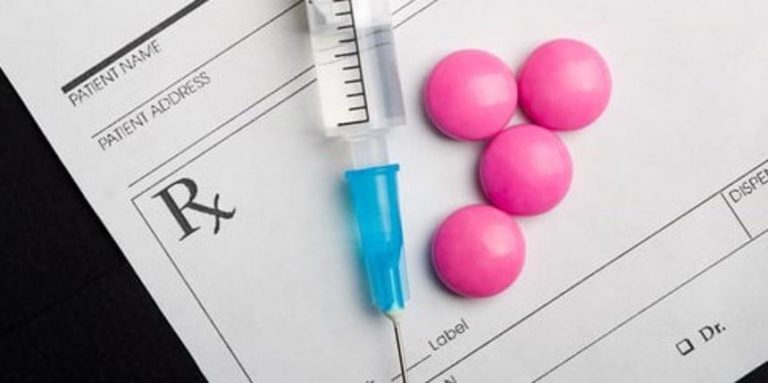Unfortunately, addiction doesn’t only affect the addicted party. There are many effects of addiction, and struggling with a drug or alcohol problem can cause stress on your relationships or marriage. Once you’ve started to recover from your drug or alcohol problem, it may seem like rebuilding your marriage is impossible. With so many roadblocks, it may feel like divorce is the only option.
While it can be difficult to rebuild after recovering from addiction, it’s not impossible. If your spouse is open to rebuilding their relationship with you, it’s going to take a lot of hard work. You have to be ready to get down to business and work together to make the relationship work. In some cases, the marriage is even stronger afterward. Here’s everything you need to know about rebuilding a marriage after addiction.
Apologize
First and foremost, owning up to your mistakes and any pain you may have caused while you were under the influence of drugs or alcohol (or struggling to come to terms with your addiction), is the most important step. You have to let your partner know that you’re eager to work toward a new, stronger marriage by apologizing for any pain you may have caused them along the way. A sincere apology can go a long way in reassuring any fears they may have about the process.
On the flip side, if you’re the partner of a recovering addict, you may have some things you want to apologize for as well. Maybe you weren’t as supportive as you could have been, or maybe you encouraged them to use drugs. During this time, you should air out all apologies for all wrongful behavior on either side. This will help you to start anew as a couple.
Set Realistic Expectations
Another important step is working on your expectations. When starting anew, some people expect everything to magically fix itself. Unfortunately, that’s not the case. Having a successful, working marriage after addiction is hard work. You should set realistic expectations or you and your partner. Think about where you want to be in a few months, a year, and five years.
Use the upcoming time to begin rebuilding trust, forgiving one another, and learning how to exist in the same space again. Remember, these things take time. If something isn’t working right away, don’t push it.
List Your Concerns
Each party should write down everything that they’re concerned about regarding the “new” marriage. By collecting these concerns in a notebook or list, you’ll give yourself goals and things to work on. If one party is concerned about trusting the other, that’s something to work on! You can also take these lists to your counseling appointments and amend them as needed if things change.
By sharing these lists with each other, each party will know what the other expects of them and will have an easier time working on whatever they need to change or get better at. It’s important to be open and honest about the things that are bothering/have bothered you. Honesty and communications are important factors for your new relationship.
Find a Marriage Counselor
You may think you can do everything alone, but it’s so much easier with a third party. By working with a marriage counselor, it may be easier to talk about the things that are on your mind and work on communicating effectively. Your marriage counselor may also give you homework assignments. These assignments can help you take what you learned in sessions and apply them at home.
Marriage counseling is good for all types of couples, even ones that think they’re doing well on their own. If marriage counseling isn’t of interest to you, try seeing a therapist individually. Not only will this help with sobriety, but it can help you learn how to more effectively navigate your marriage, too.
Encourage Sobriety
You should always encourage sobriety in your partner. If you’re both working on staying sober, you should encourage each other throughout the process. While there are tons of resources and support systems out there to help addicts stay sober, having a supportive partner throughout the process can make a world of difference.
This doesn’t mean you always have to be there when they need to vent or are worried about relapsing (they have a sponsor and other resources for that), but you should never encourage them to drink or use drugs during this time.
If possible, both parties should stay sober during this time, even if both don’t struggle with addiction. By remaining sober with your partner, you can help prevent them from relapsing. For example, alcohol and drugs should never be kept in the apartment.
Seek Individual Therapy
Addiction occurs for many different reasons, including mental health issues and experienced trauma. While your partner likely began treating these issues while they were in rehab, it’s important that they continue to work on themselves. They should seek continuous treatment in order to avoid relapse and learn healthy coping mechanisms.
As the partner of someone struggling with addiction, you may want to seek therapy on your own, too. Having someone to talk to throughout the process can be really helpful, especially if you struggle with your own mental health issues.
Find a Treatment Center to Treat the Effects of Addiction
There are many effects of addiction, including the loss of a partner or a marriage that seems like it might be falling apart. Before you can rebuild your marriage and work with your partner to create a healthy relationship, you’ll have to find treatment for yourself. Whether that means attending rehab or stopping by a support group every once and a while, treatment is the best way to get sober.
To learn more about the treatment programs that we offer, give us a call any time. We’re eager to help you get and stay sober. After your treatment program, we can help with ongoing support, providing resources to help you stay clean and have a happy marriage. Call Asheville Recovery Center today to learn more.








